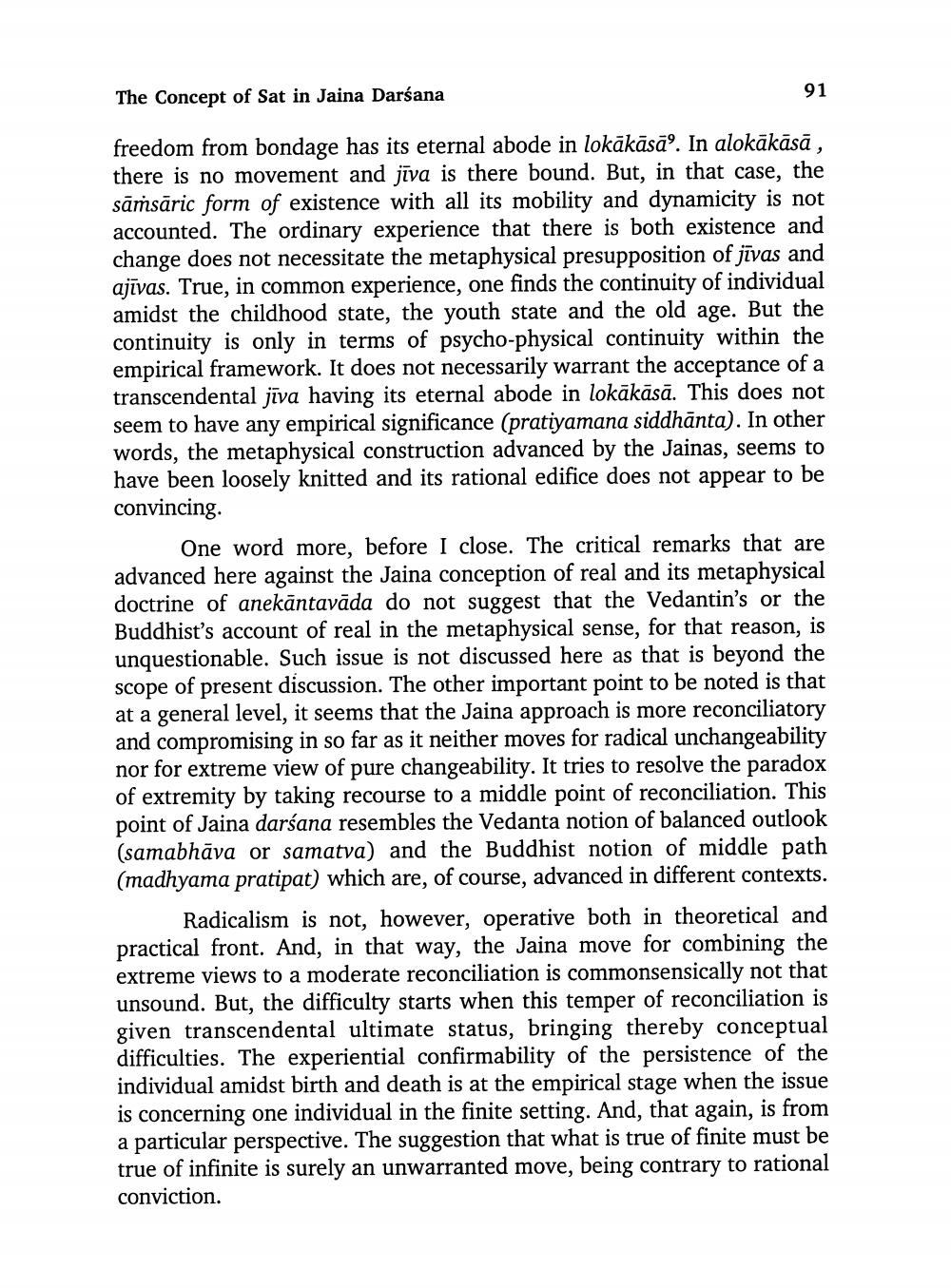________________ The Concept of Sat in Jaina Darsana 91 freedom from bondage has its eternal abode in lokakasa". In alokakasa, there is no movement and jiva is there bound. But, in that case, the samsaric form of existence with all its mobility and dynamicity is not accounted. The ordinary experience that there is both existence and change does not necessitate the metaphysical presupposition of jivas and ajivas. True, in common experience, one finds the continuity of individual amidst the childhood state, the youth state and the old age. But the continuity is only in terms of psycho-physical continuity within the empirical framework. It does not necessarily warrant the acceptance of a transcendental jiva having its eternal abode in lokakasa. This does not seem to have any empirical significance (pratiyamana siddhanta). In other words, the metaphysical construction advanced by the Jainas, seems to have been loosely knitted and its rational edifice does not appear to be convincing. One word more, before I close. The critical remarks that are advanced here against the Jaina conception of real and its metaphysical doctrine of anekantavada do not suggest that the Vedantin's or the Buddhist's account of real in the metaphysical sense, for that reason, is unquestionable. Such issue is not discussed here as that is beyond the scope of present discussion. The other important point to be noted is that at a general level, it seems that the Jaina approach is more reconciliatory and compromising in so far as it neither moves for radical unchangeability nor for extreme view of pure changeability. It tries to resolve the paradox of extremity by taking recourse to a middle point of reconciliation. This point of Jaina darsana resembles the Vedanta notion of balanced outlook (samabhava or samatva) and the Buddhist notion of middle path (madhyama pratipat) which are, of course, advanced in different contexts. Radicalism is not, however, operative both in theoretical and practical front. And, in that way, the Jaina move for combining the extreme views to a moderate reconciliation is commonsensically not that unsound. But, the difficulty starts when this temper of reconciliation is given transcendental ultimate status, bringing thereby conceptual difficulties. The experiential confirmability of the persistence of the individual amidst birth and death is at the empirical stage when the issue is concerning one individual in the finite setting. And, that again, is from a particular perspective. The suggestion that what is true of finite must be true of infinite is surely an unwarranted move, being contrary to rational conviction.




